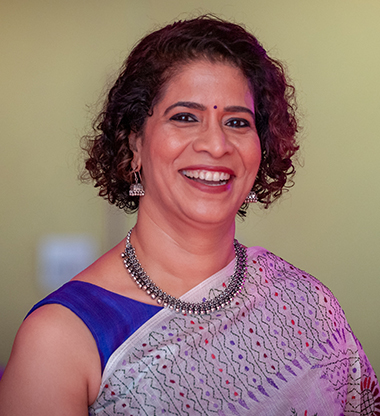
Practicing Mindful
Listening
Giving someone your full attention in a conversation isn’t easy, but it is a skill we can develop and practice.

And suddenly you know its time to start something new and trust the magic of beginnings
Do you remember your last conversation with someone and realized that, they weren’t with you for some reason?
One of the key reasons that you felt the way you did was because, the person could have pretended to be listening to you.
To be precise, in your own conversations, do you recollect incidents of you smiling, nodding, or simply saying yes to the other person but not listening to a single word?

Perhaps, you also…
- Jump to conclusions on hearing familiar conversations.
- Constantly take notes as it helps you remember things better.
- Enjoy day dreaming.
- Like to assume things based on your experience rather than wait for the conversation to end.
- Constantly think of the reply while the other person is talking.
- Easily get distracted with people and noises around.
- Like to multitask while listening to others.
If you got ‘Yes’ to most of the statements above, then you are struggling with listening. If the answers are ‘No’ then clearly you are gifted!
As professionals, we understand the consequences of miscommunication at the workplace. Many research studies have proved that, poor communication directly correlates to the productivity of teams, impacting business.
One of the most important skills for effective communication, apart from others, is the skill of listening.

What is listening?
It’s about deeper connection with the other person, faithfully gathering and processing the information, without any judgements! Often, it is rather easy to hear something and before we know it we’ve labeled, categorized, and shelved it.
At its core, listening is about taking time to experience what we’re hearing in the moment. We are not too late to practice mindful listening!
5 steps process for effective listening – try this and experience the magic!
- Step 1 – Stop everything you do to listen.
- Step 2 – Focus on the person speaking, while paying him/her full attention.
- Step 3 – Stop labelling conversations.
- Step 4 – Be open and curious at the same time.
- Step 5 – Paraphrase what you heard in your own words.

Stop everything you do to listen.
In order to be a good listener, your objective needs to be clear that you want to be a genuine listener.
Set clear intentions to be a better listener.
Why is this important? This prepares you physically, to understand what the other person is saying. It assures the other person that, you are with them in the conversation. Exercise: Stop multitasking in a conversation!
Focus on the person speaking while paying him/her full attention
How is this different from step 1? Here we say… prepare yourself mentally. I know this could be a big challenge as our mind never stops thinking. I’m sure while you are reading this, you must have had several other thoughts. Example “I knew this already”. It’s imperative for us to gather our thoughts and to be present in the moment. One way to do this is by conscious breathing, breath in – breath out, till you think you are ready to listen. Exercise Breathe in slowly and breathe out slowly (do it for as many counts as it takes you to focus on the present moment).
Stop labelling conversations
We are quick to judge and assume, than iterate our understanding. Its not necessary that we know everything or know nothing. Assumptions do help us at times but many times it backfires, specially at the workplace, where the business environment changes rapidly. Therefore, instead of assuming things, ask questions to clarify your understanding.
Exercise – Pick a day in a week and tell yourself that today will be ‘NO ASSUMPTIONS DAY’, like we follow no honking day, no smoking day or no car day.

Be open and curious at the same time.
Be open, meaning that, you are open to the conversation without any assumptions, conclusions and judgements. Following the previous step would help you achieve this step. Setting your objective to listen carefully will lead to being more open to the conversation. When there are no predicted intentions then naturally you become curious. Exercise – to practice openness and curiosity, try this out – “I’m interested in what you are saying”, “tell me more” “I have heard it before but would like to hear from you” “I’m curious to know” “you have something to share”
Paraphrase what you heard in your own words.
This is the last step and trust me, it’s a savior if you are a not such a good listener.
Show your understanding by paraphrasing or, in simple words repeating what you understood, in your own words. This is a very powerful step as it helps you bridge the gap between what you understood and what has been said.
Paraphrasing helps you and the speaker having a clear understanding of what was said and needs to be done. Sometimes it helps the speaker in knowing if they have covered all required information.
Exercise – “I understand you want me to …….. “ “you said……” “so far what I have gathered from you is….”
HAPPY LISTENING!







